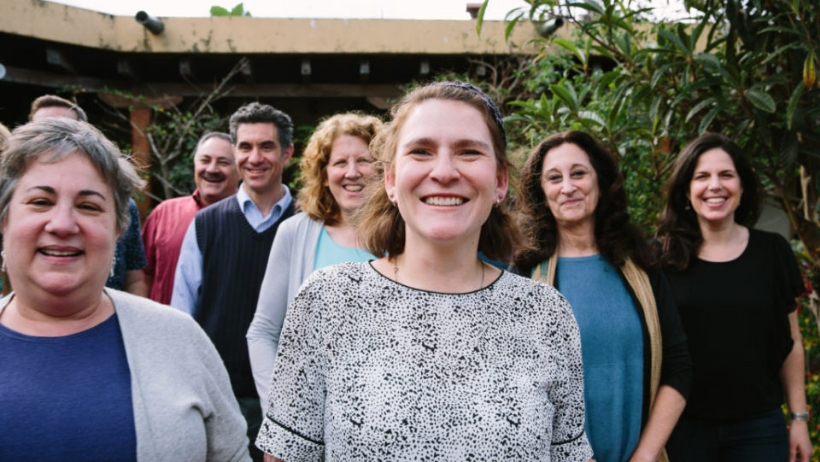As many of you know, I spent the first half of this week in Washington D.C., where I met with representatives and agencies to advocate on behalf of human rights efforts in Guatemala. This was the culmination of the American Jewish World Service Global Justice Fellowship for rabbis. Prior to the Guatemala trip itself, I spent six months learning about the work that AJWS does globally to promote rights-based advocacy and global justice. Then I spent seven days in Guatemala hearing firsthand accounts of the corruption in government, the difficulty of making a living, and the triumph of human beings who fight daily for their dignity.

As life-changing as the experience has been, this was not an easy trip for me to commit to. When I was considering the trip, my list of drawbacks was long. I was hesitant to leave my family for a week with little communication. I was still nursing my son and didn’t want to break that connection. It wasn’t fair to my community for me to take time away. The expense would take funds from other efforts. The list goes on. Apparently I’m really good at coming up with reasons why I shouldn’t do something. My list of why I should attend was simple: I have a moral imperative as a human being to offer help when I’m able. I should find a way and the time to make this happen.
Even once I committed, the concerns remained (and changed). For months ahead of time, I sat in anxiety about the trip. Was I prepared? Was I the right person to do this? How would I be without my daily snuggles from my babies? Should I even go?
I drew strength, as I often do, from my core text, the Torah. This week we read Parshat Vayikra, and we begin the third book of the Torah, which details the many sacrifices and daily, active mitzvot of living as an Israelite. This begins with the explanation of the sacrifices that we are to give daily, weekly, and yearly. We learn that there can be a sacrifice made in times of joy and in times of sorrow. There is a special sacrifice for being guilty of a sin and others for complete thanksgiving. As Sefer Vayikra continues, we learn about the laws of how to treat one another, how to engage in holy relationships, and how our calendar and meals should reflect our innermost values and desires.
As the types of sacrifices are listed, we learn about the “guilt offerings” in chapter 5: “If a person incurs guilt – when he has had a public imprecation and – although able to testify as one who has either seen or learned of the matter – he does not give information, so that he is subject to punishment.” Basically, we are responsible not only for the things we do wrong, but for the things we should have done, but neglected. The Talmud in Tractate Bava Kama calls this “innocent before a human court but liable in the sight of God.”
Ultimately, we can all find reasons for why we “can’t” or “shouldn’t” do something that might help others, especially if it’s an inconvenience to our daily lives or a big step forward; however, our Torah reminds us that the call to action is one we cannot ignore. That when we have the ability to make a change in ourselves or the world, we must take that action.
I spent the week in Guatemala missing my family dearly, but I don’t regret it for a second. Taking the action – making this a “done” instead of a “to do” – meant I was witness to both the atrocities of injustice and the persistence of the human spirit, and now I will speak out about how to help others, not because I should, but because I must.



